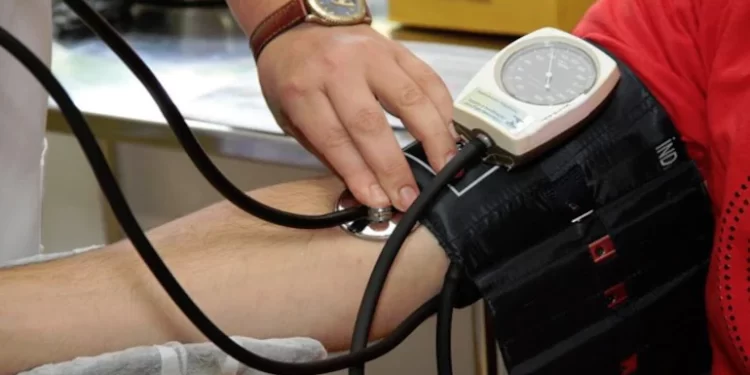One of the numerous lessons learned in recent years is that you cannot rely entirely on others for your health. As we all know, medical emergencies can happen at any time. The importance of being prepared to manage all of these instances, whether professional medical help is available or not, cannot be overstated.
In the absence of complete medical care, simple medical devices are the best thing you can rely on to save prevent serious health problems and potentially save your life. Thanks to various technological innovations, you can manage your health, aid household members with health care, or get health management assistance. These technologies aid in monitoring fundamental health indicators while reducing the time and effort required to return to the clinic.
Medical devices include everything from equipment that monitors your heart rate to gadgets that make it easy to check someone’s temperature. Let us look at some of the most useful medical devices to own.
- The Thermometer
Many overlook the significance of having the most basic health equipment at home, such as medical thermometers. The medical thermometer is the first health instrument to intervene when a person gets a fever. It allows you to check your body temperature and analyze the severity of hyperthermia before contacting a medical professional.
Contactless thermometers, in particular, have become an indispensable device for all. It allows people to take body temperature readings without touching the subject intimately. A medical thermometer is much more necessary for a pregnant woman, toddler, or newborn baby.
- Circulation Booster
You are probably wondering what a circulation booster is if you’ve never seen or heard of one. This is yet another essential piece of medical device that you should keep on hand. The circulation booster is a scientifically proven pain relief system that you may use in the comfort of your own home to help people with nerve difficulties and foot pain.
Circulation boosters, such as the Circulation Booster by Revitive are an effective way to improve circulation while also preventing or managing vein disease. This at-home pain management system delivers pain treatment from the thigh upward while you relax at the end of the day. This circulation enhancer is easy to use and carry and can be utilized anywhere, from your bedroom to your office.
- Blood Pressure Meter
The capacity to do essential health treatments at home has become necessary as more health consultations are being conducted virtually. Taking blood pressure is one of them. Increased stress, obesity, inactivity, and a salty diet can negatively impact blood pressure. Digital blood pressure monitors are a convenient instrument at home to keep track of your blood pressure and pulse.
Long-term high blood pressure can damage arteries and the heart. Therefore, blood pressure monitoring is critical. It is possible to tell if drugs are needed or effective by testing blood pressure. A digital blood pressure monitor is easier to use than a standard sphygmomanometer used in clinics because it presents the readings directly.
- Glucometer
Any good diabetes control plan must include daily blood sugar testing. Fortunately, various glucometers on the market today can help you keep your blood sugar levels in check from the comfort of your home. This equipment is convenient and straightforward for everyone, including elderly individuals. Regularly monitoring your glucose levels is necessary to avoid any severe health problems in the future.
Home glucose monitors can aid in the management of diabetes and the reduction of complications. In addition to therapy, a home monitor can help you understand the factors in your life that cause your blood sugar to rise or fall, from exercise to illness, dehydration, stress, and more.
- Oximeter
Pulse oximeters for home usage are not new, but as COVID-19 prioritizes health and safety, more people seek ways to manage their blood oxygen levels from home. The pulse oximeter checks to see if your blood is properly oxygenated. They are non-invasive devices you can wear on your fingertip to measure the amount of oxygen in your blood.
You must closely monitor blood oxygen levels in individuals with certain ailments. These devices are also beneficial to pilots and endurance athletes who work or train at high altitudes, with a higher risk of oxygen deprivation. This product is widely available, and some models include pulse reading, which provides additional health information.
- Vaporizers
When you have severe congestion, a cold, a cough, or a blocked nose, taking steam through a vaporizer is one of the most effective treatments that can help. If you get these respiratory infections frequently, it is a good idea to maintain a vaporizer at home to take steam.
Warm, moist water vapors enter your nose canal, loosening infection-causing mucus and clearing your airways. Steam inhalation is not a cure-all for any illness, but it can assist, and learning how to use a vaporizer can help you get better results. This aids in the control and management of chest and nose congestion.
- Nebulizers
A nebulizer is a device that converts liquid medicine into tiny droplets that you can inhale through a mouthpiece or mask. Doctors may prescribe nebulizer equipment to patients who have respiratory problems. These devices deliver oxygen to the lungs swiftly and are highly necessary when instant relief is required while ensuring that your lungs receive enough oxygen.
Home and portable nebulizers are the two standard options available. Home nebulizers are bigger and require an electrical outlet, while portable nebulizers can be powered by batteries or plugged into a car socket. Some models are slightly larger than a deck of cards, which you can easily carry in a bag or briefcase.
Conclusion
Many overlook the value of having health equipment at home, such as blood pressure monitors, medical thermometers, and blood glucose meters.
In addition to consulting with medical professionals regularly, you must rely on this critical medical equipment to monitor the primary indications of your general health that can alert or help you to any abnormalities in your physical condition. Therefore, you must have a minimum of medical equipment to offer first aid or determine whether you need to go to a clinic to become informed of your health concerns.














